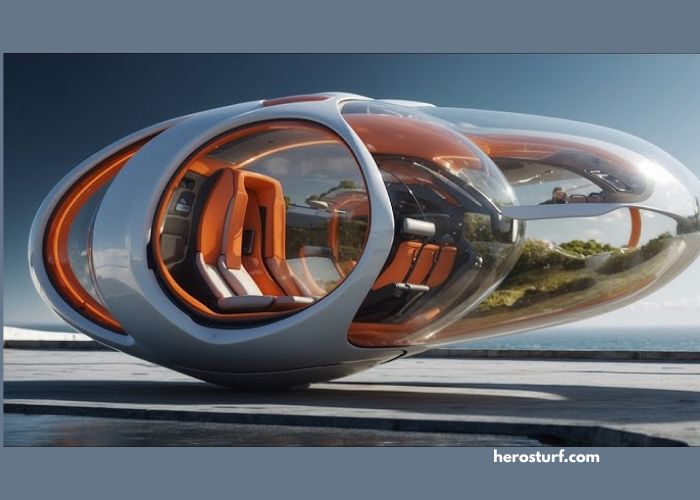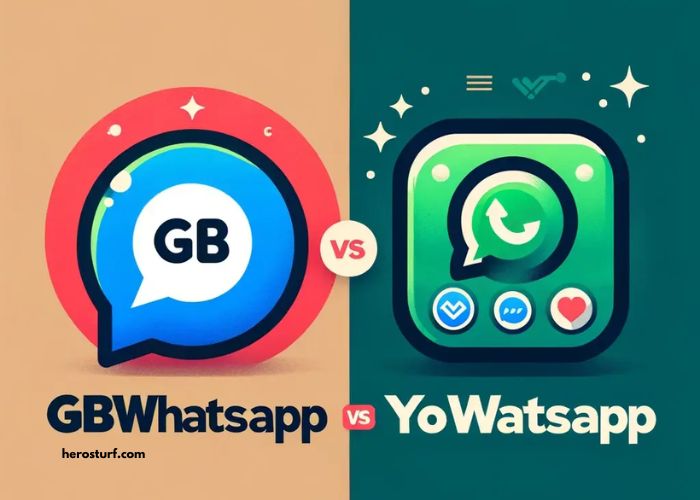Future Technology Trends Shaping the World
In the ever-evolving digital age, the speed at which technology is transforming our lives is nothing short of remarkable. From artificial intelligence to quantum computing, the innovations of today are the foundations of tomorrow. Businesses, governments, and individuals alike are gearing up for a future shaped by advanced technological trends. In this comprehensive guide, we’ll explore the future technology trends shaping the world, their implications, and what they mean for industries and everyday life.
The Role of Emerging Technologies in Global Evolution
Technology is no longer a support system — it’s a driving force that dictates the pace and direction of societal progress. As we head deeper into the 21st century, certain trends are gaining momentum and are poised to redefine how we live, work, and interact.
Artificial Intelligence (AI) and Machine Learning (ML)
AI-Powered Automation
Artificial Intelligence is redefining business processes, manufacturing, healthcare, and customer service. AI-driven automation is expected to handle complex tasks, replacing repetitive manual jobs and reducing human error.
Hyper-Personalization through ML
Machine Learning allows systems to learn from data patterns and improve outcomes over time. From personalized shopping recommendations to predictive healthcare models, ML is enhancing user experiences in unprecedented ways.
Quantum Computing
Revolutionizing Problem-Solving
Quantum computing promises to solve problems deemed impossible for classical computers. It holds immense potential in areas such as cryptography, drug discovery, and financial modeling.
Quantum Supremacy and Beyond
With tech giants like Google, IBM, and Microsoft leading the race, achieving quantum supremacy — where quantum computers outperform classical ones — is closer than ever, potentially disrupting entire industries.
The Rise of the Metaverse
Redefining Digital Interaction
The metaverse, a collective virtual shared space, combines augmented reality (AR), virtual reality (VR), and blockchain to create immersive digital experiences. It’s poised to reshape education, remote work, and social interaction.
Digital Economy within the Metaverse
From virtual real estate to NFT-based fashion, the metaverse is developing its own economy, presenting lucrative opportunities for creators, developers, and brands.
5G and Beyond: The Connectivity Revolution
Enhanced Speed and Reliability
5G technology offers ultra-low latency, high-speed internet, and reliable connectivity, paving the way for innovations such as autonomous vehicles, smart cities, and IoT expansion.
Edge Computing with 5G
5G enhances edge computing by allowing data to be processed closer to the source, reducing latency and bandwidth use, and empowering real-time applications like remote surgeries and smart manufacturing.
Internet of Things (IoT) and Smart Devices
The Smart Home and Smart City Revolution
IoT connects everyday devices to the internet, enabling automation and real-time data exchange. Smart homes with connected appliances, lights, and security systems are becoming the norm, while smart cities use IoT to manage traffic, waste, and energy efficiently.
Industrial IoT (IIoT)
In the industrial landscape, IoT optimizes production, reduces downtime, and ensures predictive maintenance. IIoT is a game-changer for sectors like manufacturing, logistics, and agriculture.
Blockchain and Decentralized Systems
Beyond Cryptocurrency
While blockchain is popularly associated with cryptocurrencies, its potential extends to supply chain transparency, digital identity management, secure voting systems, and smart contracts.
Web3: A Decentralized Internet
Web3 is a new vision for the internet where users control their own data. It represents a shift from centralized platforms to decentralized protocols, giving rise to new economic models and data sovereignty.
Extended Reality (XR): AR, VR, and MR
Transforming Education and Training
Extended Reality (XR) — encompassing AR, VR, and MR — is revolutionizing sectors like education, healthcare, and defense by providing immersive training experiences and interactive learning environments.
Gaming and Entertainment
XR is redefining entertainment. With VR headsets and AR-enhanced mobile games, users can experience lifelike environments and interact with digital content in real-time.
Robotics and Autonomous Systems
Robots in Daily Life
Robots are moving beyond factories. From domestic robots helping with chores to AI-powered companions providing eldercare, robotics is becoming integral to modern life.
Autonomous Vehicles and Drones
Self-driving cars, delivery drones, and unmanned aerial vehicles (UAVs) are no longer concepts but real-world innovations undergoing trials and gradual deployment.
Biotechnology and Human Augmentation
Personalized Medicine and Genomics
Advances in biotech are making personalized medicine a reality. Gene editing tools like CRISPR are offering solutions to previously untreatable genetic conditions.
Human Enhancement and Biohacking
Wearable tech, brain-computer interfaces, and prosthetics are augmenting human capabilities, raising ethical questions while opening new possibilities for healthcare and performance.
Renewable Energy and Green Tech
Transition to Sustainable Energy
Solar, wind, and hydroelectric power are replacing fossil fuels. Emerging innovations in battery storage and smart grids are making renewable energy more viable and scalable.
Climate Tech and Carbon Capture
Technologies aimed at mitigating climate change, including direct air capture and sustainable agriculture, are gaining investment and political attention worldwide.
Cybersecurity in a Hyperconnected World
AI in Cyber Defense
As cyber threats become more sophisticated, AI is playing a vital role in detecting anomalies, preventing breaches, and ensuring data integrity.
Zero Trust Architecture
With remote work and cloud computing, traditional security models are obsolete. Zero Trust Architecture — which assumes no trust within or outside the network — is becoming the new standard in cybersecurity.
Space Technology and Exploration
Space Tourism and Commercial Flights
Companies like SpaceX, Blue Origin, and Virgin Galactic are pushing boundaries with commercial space flights, signaling the dawn of the space tourism era.
Satellite Internet and Global Coverage
Satellite constellations like Starlink are providing high-speed internet access to remote and underserved areas, contributing to global digital inclusion.
Digital Twins and Simulation Technologies
Virtual Replicas of the Physical World
Digital twin technology creates real-time replicas of physical systems — from factories to cities — enabling simulation, testing, and predictive maintenance.
Real-Time Decision Making
By integrating IoT and AI, digital twins offer businesses the ability to make faster and more accurate decisions, improve productivity, and reduce operational risks.
Voice Technology and Natural Language Processing (NLP)
Smarter Virtual Assistants
Voice recognition and NLP are enabling devices to understand, interpret, and respond to human language more naturally. From smart speakers to customer service bots, voice tech is becoming more intuitive and widespread.
Language Translation and Accessibility
Real-time translation and transcription tools powered by NLP are breaking language barriers and enhancing accessibility for people with disabilities.
Ethical and Societal Implications of Emerging Technologies
Privacy and Surveillance
As technology grows more powerful, concerns over privacy, surveillance, and data misuse increase. Regulatory frameworks and ethical AI are vital to balancing innovation with human rights.
Job Displacement vs. Job Creation
Automation and AI may displace certain job roles, but they also create new opportunities in tech-driven industries. Upskilling and reskilling the workforce are crucial for a smooth transition.
Education and the Future of Learning
EdTech and Virtual Classrooms
Online learning platforms, VR classrooms, and adaptive learning systems are making education more accessible, personalized, and engaging.
Lifelong Learning and Digital Skills
In a rapidly changing tech landscape, continuous learning is essential. Digital literacy and tech fluency will be foundational skills for the future workforce.
Healthcare Innovations and Telemedicine
AI in Diagnostics
AI is already assisting in medical imaging, disease prediction, and diagnostics, making healthcare more accurate and efficient.
Remote Healthcare Delivery
Telemedicine platforms and wearable health monitors are enabling remote consultations, chronic disease management, and wellness tracking from anywhere.
Sustainable Infrastructure and Smart Architecture
Green Buildings and Smart Infrastructure
Sustainable materials, energy-efficient designs, and AI-integrated smart systems are revolutionizing construction and urban planning.
Urban Mobility and Smart Transportation
Integrated public transport systems, e-scooters, and mobility-as-a-service (MaaS) platforms are making cities smarter and more livable.
The Future Is Now: Preparing for What’s Ahead
Embracing Change and Innovation
To thrive in the future, organizations and individuals must stay adaptive, invest in emerging technologies, and cultivate a culture of innovation.
Collaboration and Responsible Innovation
The future of technology is not just about advancement, but also responsibility. Global collaboration, ethical development, and inclusive access will be key drivers of sustainable progress.
Conclusion: A Technological Tapestry of Tomorrow
The future is unfolding before our eyes, woven together by countless strands of innovative technology. From AI to space travel, these future technology trends are shaping the world in profound and transformative ways. As we navigate this evolving landscape, embracing change with foresight and responsibility will ensure that technology remains a tool for progress, empowerment, and human betterment.



